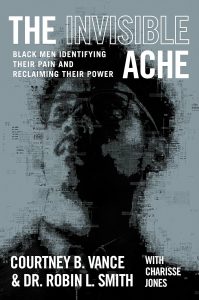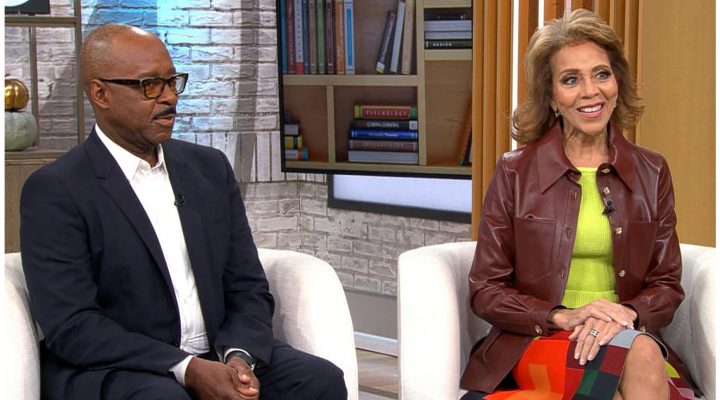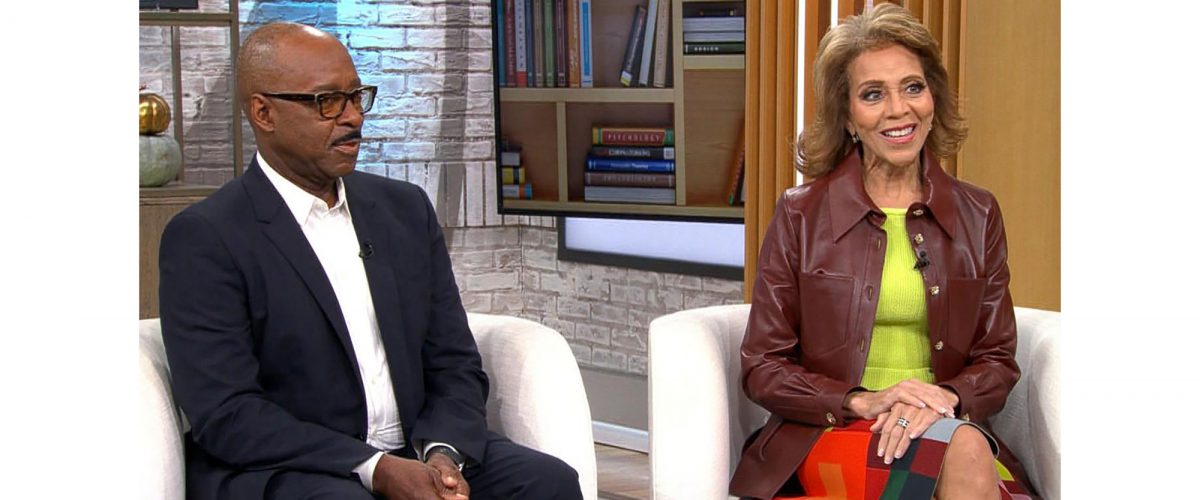It’s been said that COVID-19 was the great divider in our country. However, the pandemic brought together actor Courtney B. Vance and author Robin B. Smith to write about another health crisis.
In their new book, The Invisible Ache, the two make the case that there are overwhelming mental and emotional crises affecting Black men in America.
The authors came together during the pandemic and instantly knew they shared a connection.
“The book idea and process started during COVID-19,” Smith said. “While in my kitchen talking to my agent by Zoom, she mentioned how she and Courtney shared some of the same issues and stories when it came to Black men’s health. When my agent connected us, I knew this was the project for us.”
For Vance, this journey in understanding Black men’s health is all too personal. He is the husband of influential actress Angela Bassett and loves telling stories about their relationship. However, life hasn’t always been what it is today.
“My counselor saved my life, and I recommend that Black men should go and see one.”
“My father took his life 33 years ago and it was at that moment that my mom suggested I see a counselor and look deep within at the issues and pains that were affecting me,” Vance said in an interview. “My godson would also end up taking his life at the age of 20, so the issue of Black mental health is one I take deeply and it’s a journey I’m glad to be on. My counselor saved my life, and I recommend that Black men should go and see one. Life isn’t going to be easy, and you have to prepare yourselves for the battle of life.”
From their research and experience, they both know many people may look at their book (and going to counseling in particular) with a skeptical view, which is why they want to encourage all Black men to seek mental health care.
 “It’s your God-given right to share your truth and your story and to come into fullness,” Robinson said. Vance agrees and believes this fullness can be achieved for all Black men if they’re ready to step out and get the help they need.
“It’s your God-given right to share your truth and your story and to come into fullness,” Robinson said. Vance agrees and believes this fullness can be achieved for all Black men if they’re ready to step out and get the help they need.
“You have to prepare yourself for those battles,” Vance said. “It doesn’t mean just because there’s a battle there’s something wrong. Black men have to understand the wisdom that comes from seeking help and advice from counselors.” Vance believes when people seek counsel they play into the hands of God’s plan by seeking the help and wisdom that God wants them to receive.
“When, I went through my first counseling session with Dr. K, as I called her, it was time for me to go. In that first session, I was talking a mile a minute and Dr. K said, ‘Courtney, you don’t have to tell me everything today.’”
“Courtney was sharing about holes,” Smith recalled, “and he and I talk a lot on the road and in the book that we all have holes. We’re ashamed of our holes, especially the parts of us that are broken and that ache and that hurt are part of our divine birthright to be human. We all have holes longing to be whole, which is a holy journey. So if we think about the way in which Black men were robbed of their whole humanity and the longing for wholeness, and told that they were only three-fifths human, much of the invisible ache is about inviting and reinviting Black boys and men (and all of those who love them) to remind and encourage Black boys and men to recognize that it is their right to have their holes longing to be whole.”
These holes manifest in the high suicide rates among Black men.
“Black men and the suicide rate for Black children, not just adolescents, but Black children, has increased,” Smith explained. “Eight-year-olds are dying by suicide. The surgeon general is considering making loneliness a health hazard, because he knows, and the statistics and research are showing, that isolation and loneliness can be as toxic, if not more, as some of the chronic diseases like diabetes or cancer or smoking 15 cigarettes a day. Loneliness is more detrimental to our health than smoking 15 cigarettes a day. That doesn’t mean it’s good to smoke 15 cigarettes a day, but it’s what isolation and loneliness does to Black men and to Black boys.
She believes the increase in suicides has much to do with isolation, systemic racism and “the inability to understand the needs and hurts of Black men.”
One of the chief barriers to addressing mental health among Black men is shame, the authors say.
“Shame murders the soul,” according to Smith.
There is a better way, however, and that is in the freedom of accepting a God-given calling and seeing yourself fulfilling the mission of Christ, she said. “I’m where I’m supposed to be, and when it’s time, God will take me to wherever he wants me to go next. But for right now, God is being served.”


